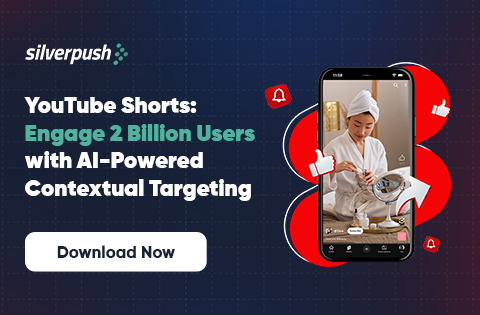Cookieless Advertising: A Must-Include in Your Digital Advertising Diet | 19 May, 2023

Hold on to your advertising hats, because big cookieless changes are coming to the digital ad landscape!
Many of us have experienced being followed across various social media platforms and other websites. And being given persistent personalized reminders to purchase a product after searching for it online.
What’s the reason behind it, ever given it a thought?
We all leave behind traces of data regarding our online activities, including the websites we visit and the searches we make.
Advertisers use this information to deliver personalized ads through a process called online behavioral advertising.
Basically, it’s done through the use of cookies, which are small files that are stored on our device when we visit a website.
Undoubtedly, cookies have helped fuel a multi-billion dollar online advertising industry. According to data, this well-worn digital tool has helped build digital advertising into a highly efficient $350 billion market.
But now as we witness the dawn of third-party cookies, what’s the new alternative targeting option for brands without taking a hit on their ROI?
This blog has all the answers you need. Read it till the end as you won’t want to miss a single detail about Silverpush’s omnichannel hyper-contextual advertising solutions helping brands thrive in the cookieless world.
Why is There a Need to Go Cookie-Less?
“Before cookies, the web was essentially private. After cookies, the web becomes a space capable of extraordinary monitoring,” said Lawrence Lessig 20 years ago.
For a long time now, advertisers have relied on cookies to monitor users across the internet and offer them customized ads based on their browsing behavior.
However, the usefulness of cookies is witnessing a downfall as they are heading toward obsolescence.
As per Google’s recent reports, by the end of 2024, Google’s Chrome browser is anticipated to restrict third-party cookies, which are already blocked on Safari and Firefox.
Google’s Chrome browser dominates the industry with a market share of over 60 percent in Europe and is widely used across multiple regions globally. As a result, we predict that Google’s proposed cookie policy is likely to spell the end of cookie-based advertising.
Advertisers will face a significant challenge as other tracking techniques also face mounting pressure. Notably, Apple’s app-tracking-transparency (ATT) framework already requires app providers to obtain explicit user consent before tracking them via device identifiers in the mobile app space.
Preliminary data suggests that only around 46% of consumers are willing to be tracked, and this percentage may be even lower in countries where privacy is a major concern for users.
The recent update in Apple’s policies means that app providers will face limitations in tracking users through device identifiers within the Apple ecosystem. Meaning, most users will not be trackable, which could have implications for targeted advertising and user profiling.
It’s worth noting that both Google and Apple have publicly stated that they will not support any attempts to create workarounds, such as probabilistic fingerprinting, to enable user-level profiling within their ecosystems.
Advertisers Need to Look Out for Themselves
It’s predicted that the elimination of third-party cookies and device identifiers will likely have a negative impact on advertising effectiveness and ultimately on the ROI for advertisers in the short term.
This will pose a significant challenge for brand marketers in sectors that are not closely tied to customer transactions, such as consumer packaged goods, automotive, and pharmaceuticals.
Despite the challenges, advertisers have several opportunities to strike a balance between precise targeting and accurate impact measurement while respecting consumer privacy.
Broadly speaking, implementing strategies that prioritize transparency and provide value to users in exchange for their data will most likely lead to success.
Many users are comfortable with personalized advertising as long as they are fully informed about the underlying mechanisms and not misled in any way. This approach can also help build consumer trust in the brand, which is a valuable outcome.
Upgrade your Advertising with Silverpush’s Hyper Contextual Cookieless Solutions
With the end of third-party cookies, advertisers need to shift to new solutions to engage with users in a privacy-safe and effective way.
Silverpush’s Mirrors offers contextual targeting solutions that deliver personalized ads to audiences without relying on their personal data. This ensures brand safety and relevance to the brand, even in a cookie-less environment.
Leverage the AI-powered solution of Mirrors by Silverpush to reach your relevant audience at the right time and place while respecting user privacy. Our platform guarantees complete brand safety and suitability on popular channels such as YouTube, OpenWeb, and CTV.
To learn more about how Silverpush can help you prepare for the cookieless world, simply fill out our form, and we’ll guide you toward successful advertising in a cookieless future.

BLOGS
Silverpush Partner Spotlight: Moka Goto, Digital Planner at Dentsu Digital Global Center
This week, the Silverpush team spoke with Moka Goto, Digital Planner at Dentsu Digital Global Center, to discuss how YouTube advertising is evolving towards 2026. From shifting planning mindsets away from pure scale towards context and moments to rethinking how performance is evaluated, Moka shared how Dentsu Digital is ...

BLOGS
What Indonesians Actually Watch During Ramadan and Why Context Decides Which Brands Win
Every year, Ramadan quietly resets how Indonesia consumes content. Days start earlier. Nights stretch longer. Families gather more often around shared screens. What people watch changes, but more importantly, why they watch changes too. For brands, this is where Ramadan becomes deceptive. The numbers look incredible. According to the Silverpush ...

BLOGS
The Ultimate Advertising Calendar for 2026 Tentpole Events
In a world where trends change in the blink of an eye, relevance often feels like some sort of rat race. That is where tentpole events come in: these are key dates and milestones with cultural or industry importance that manage to grab people’s attention, be it the FIFA World ...







